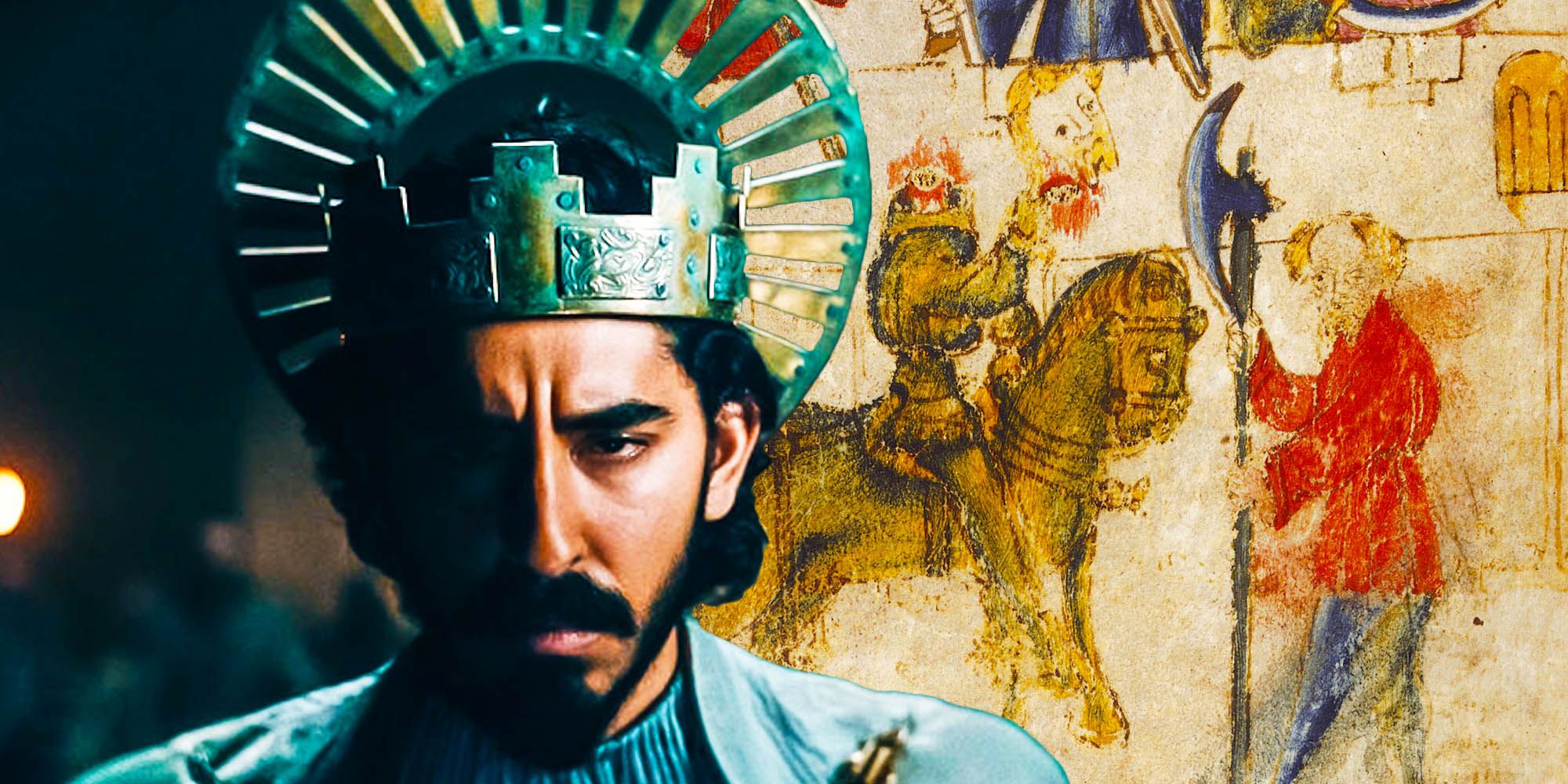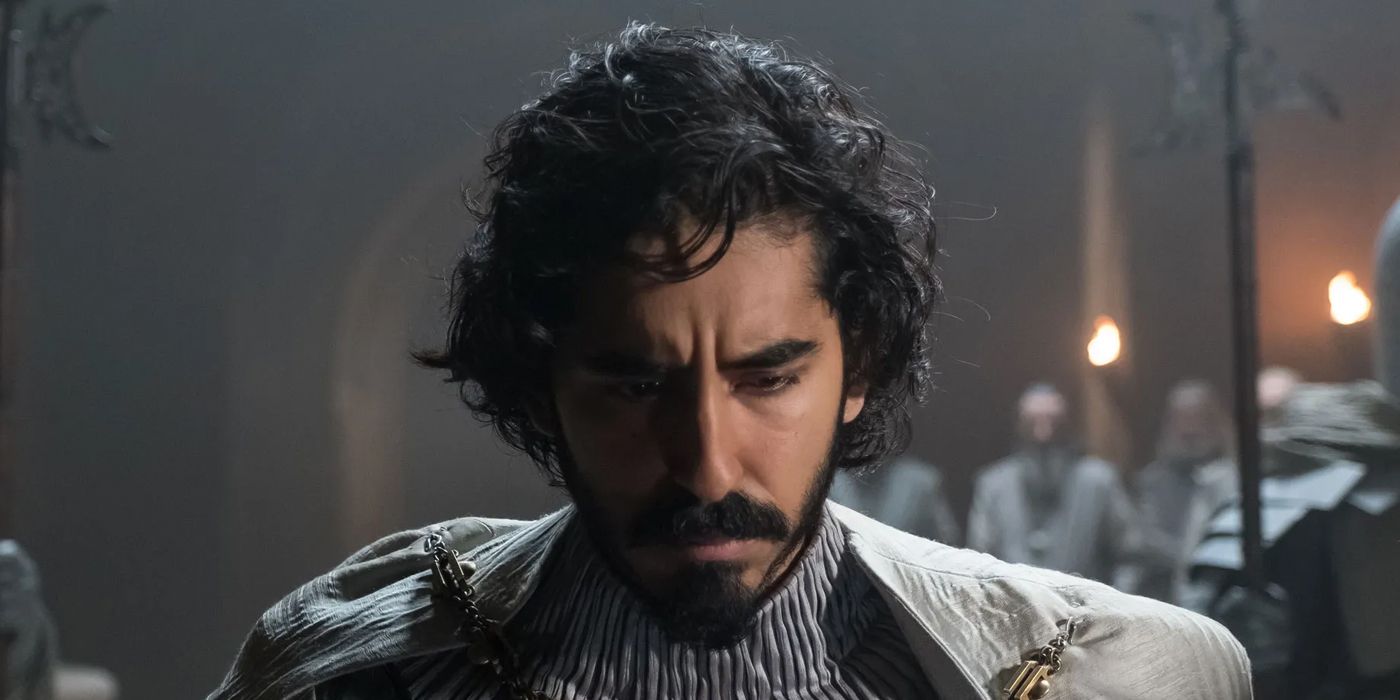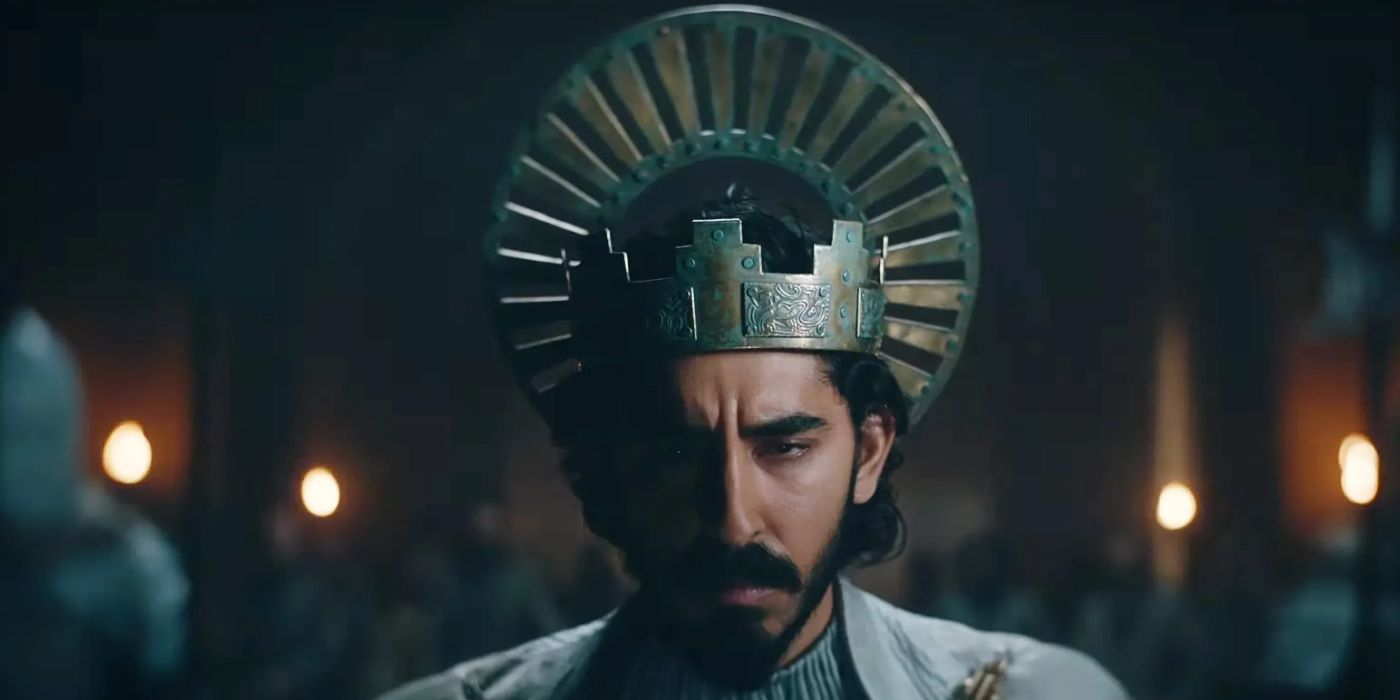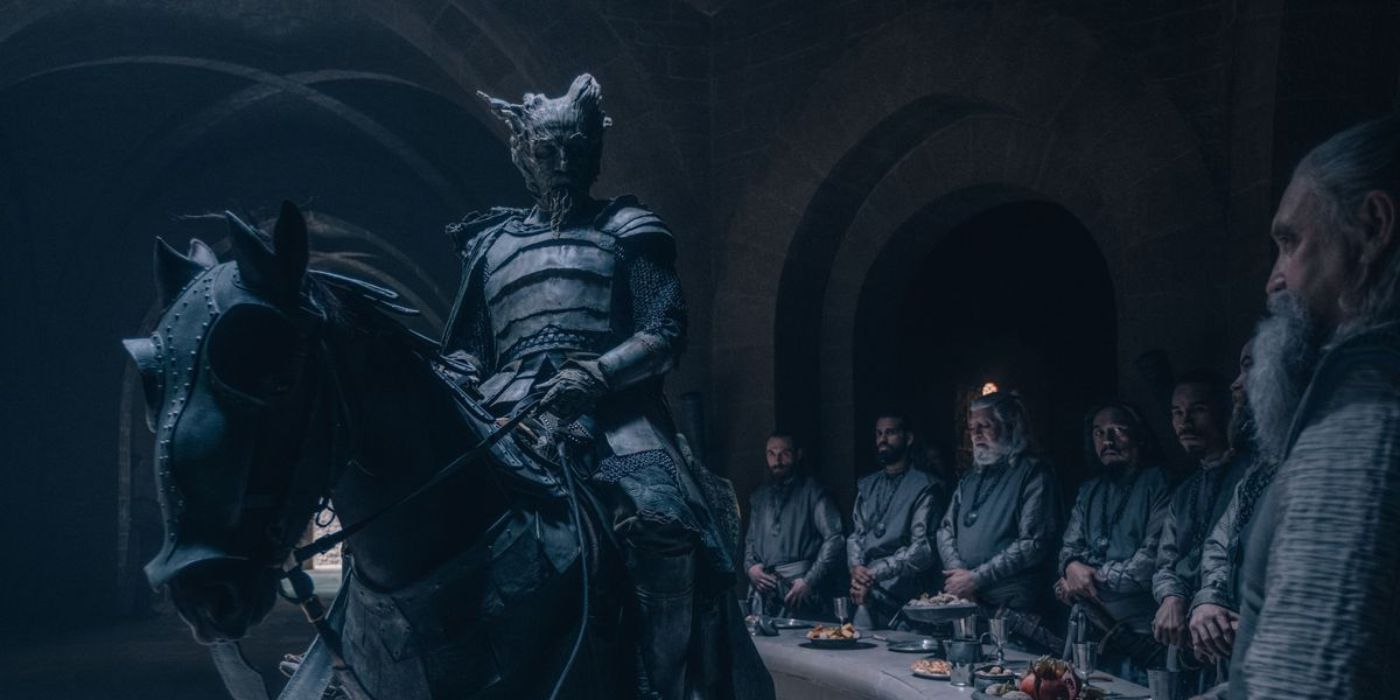David Lowrey's The Green Knight is a movie filled with larger-than-life spectacle and the kind of awe that forges myths, but changing Sir Gaiwan's race may have added even more subtle layers to the fabled narrative. A surprisingly faithful adaptation of the original 14th century epic that it's based on, the film follows King Arthur's nephew, Sir Gaiwan, as he bravely and nobly accepts a dangerous challenge from a supernatural knight: Gaiwan is allowed to land one blow on his challenger, a blow that will then be returned to him in one year's time. Filled with visions of glory and thoughts of a legacy that will outlive him, Gaiwan decapitates the Green Knight, who then picks up his head and departs from King Arthur's court, leaving Gaiwan to ponder his own mortality and question what virtues mean the most to him.
There have been hundreds of portrayals of King Arthur and his legend since the wider myth was solidified back in the 12th century, and many of them focus on the same major aspects. King Arthur, the Knights of the Round Table, his friendship with Merlin, the blade Excalibur, and his relationship with his wife Guinivere have all shown up dozens of times on the page and on the screen. Typically, Hollywood and major studios love to turn the mythos into high-fantasy action vehicles, such as big-budget flop King Arthur: Legend of the Sword or even, strangely enough, Transformers: The Last Knight. Even though there's intrigue and adventure present in the original works, Arthur's origins are starkly sociopolitical, and in fact make up a huge part of the Matter of Britain, the ancient canon of medieval literature that claims to chart the history of Great Britain.
Unlike many films that follow Arthurian legend, The Green Knight is far quieter and more introspective, concerned more with how its central character changes than it is with action. However, another aspect of the film that's unique is Dev Patel's casting as Sir Gaiwan - as the only person of color in King Arthur's court, his Indian descent adds even more subtext to what is already a thematically powerful work.
Was Sir Gaiwan Of Indian Descent? Arthurian History & Change Explained
In the original Green Knight text, Sir Gaiwan was never stated to be of Indian descent, and considering the earliest Arthurian texts originated in Wales, it's a safe bet to assume that he was intended to be a white European native. However, in the 12th century, Europe was nowhere near being an isolated continent, as trade was a very important part to sustaining the life of its kingdoms and people. It's not unreasonable to assume that, if King Arthur was a real, historical figure, he would have been surrounded by and interacted with people from different walks of life.
In fact, there were several knights who joined the Round Table of King Arthur as Arab-Muslims - specifically Palamedes and his brothers Safir and Segwarides. Their father was an exiled king of Babylon, and Palamedes is introduced as a knight fighting for the hand of Iseult, Princess of Ireland and future wife of Mark of Cornwall. Although Palamedes and his brothers are later converted to Christianity within the ranks of the Round Table, their presence shows that even in the original legends Arthur's compatriots weren't all Christian white men, giving Dev Patel's casting a bit of precedent.
How Gaiwan Being Of Indian Descent Improves His Story
From the moment viewers are first introduced to Gaiwan on-screen, there's the impression that he feels alienated. The only company he can be truly vulnerable with is a prostitute named Essel, and even his mother, Morgan le Fay herself, senses his apprehension regarding the world at large and his place in it. When audiences see him for the first time in the company of his legendary uncle, Gaiwan is literally the only person in the room who is not clearly white, and it requires no words to understand the underlying tension of the moment: Gaiwan does not feel like he belongs. He feels othered, not just in terms of his race but also in terms of his world-experience and wisdom.
This is a crucial part of why he's so eager to accept the Green Knight's challenge. Not only is Gaiwan the only person of color in his uncle's inner circle, but he's also the only one of them untested in battle. Sir Gaiwan feels that he has something to prove, and it's easy to see why he feels that way: when your uncle is the King of Camelot, it can feel overwhelming to think about all of the expectations that people have of you. And based on the film's narrative, it's implied that Morgan le Fay summons the Green Knight, which could have been a desperate attempt by a mother to force her son to come of age in a world where everyone is looking at him as if he's not worthy.
The Green Knight's Race Change Gives It Greater Historical Context & Meaning
Because so much of Arthurian legend was forged within the collective canon of the Matter of Britain, which is widely interpreted as a patriotic monomyth for British people, Arthur is frequently portrayed as a great conqueror and unrivaled warrior; someone who fought back the Saxon invaders in the 5th and 6th centuries and went on to establish the vast empire of Logres, with Camelot a shining beacon at the heart of it. And while King Arthur's story is a blueprint that can be reinterpreted and crafted in different ways, it's certainly not difficult to draw a link between the portrayal of Arthur's kingdom as an almost divine inheritance and the unfettered colonialism of the British Empire. From the early 1500s to the early 1900s, the United Kingdom began establishing colonies and uprooting governments around the world, including in North America, China, Africa, and the Indian subcontinent. This brutal international overreach lasted for hundreds of years and subjugated entire generations to European oppression, and didn't begin its slow decline until the aftermath of World War 2.
Indeed, the legend of King Arthur can be read as an analogue to British imperialism, especially considering the misery that Arthur's kingdom inevitably unfurls upon itself. In the real world, interest in Arthurian legend began to sprout again in the early 1900s, after hundreds of years of slow disinterest; this coincided with a period of time known as the Pax Britannica, wherein Britain tried to assume the role of a global peacekeeper despite having colonized over 80% of the world at that point.
There's an undercurrent of deep irony in The Green Knight when you take Great Britain's history into account. Dev Patel and Sarita Choudhury's casting feels heavy considering Britain's bloody and brutal colonization of India, and the fact that Gaiwan is desperately trying to achieve Arthur's ideal of glory almost leads him down a path of violence and heartbreak, just like the one that Arthur himself goes down in the later years of his life. It isn't until Gaiwan actively rejects the idea of achieving honor through violence or deceit that he discovers his own moral compass and is able to embrace his personal virtues.
Gaiwan Being Indian In The Green Knight Updates The Legend
In more ways than one, Sir Gaiwan being a man of Indian heritage modernizes the original Green Knight story and lends truth to the parallels at the heart of most of Arthurian legend. On one hand, Sir Gaiwan is a heroic figure and a man who chooses virtue over vice, so having him played by a beloved actor of color allows audiences to see those ideals of heroism embodied by someone who doesn't look like the traditional Medieval action hero. It also fits within the surprising diversity found within the original stories, as King Arthur's Round Table was made up of folks from all different walks of life, many of whom overcame great odds to become legends within their own right.
But deeper than this, the movie's casting gave David Lowrey an opportunity to challenge Britain's long and darkened history of colonialism while using one of their own myths to do it. So much contemporary social division in the UK is driven by a hatred of outsiders and a desire to cling to tradition, but what The Green Knight shows that sometimes tradition can be misguided, and that those with something to prove might just end up being the most virtuous of all.





